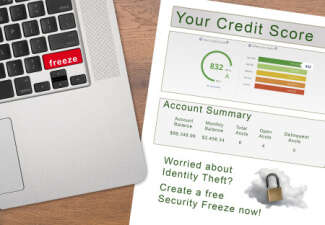The content on this page is accurate as of the posting date; however, some of the offers mentioned may have expired.

AARP is offering consumers tools to protect themselves from cyber fraud as part of Cyber Security Awareness Month.
The AARP Fraud Watch Network (FWN) offers folks scam alerts, fraud tips, and educational materials—all at no charge. People can take the Wi-Fi Security Quiz, which helps raise awareness about portable electronic device safety and potential hackers, as well as the Catch a Con video quiz. This quiz was designed by security expert Frank Abagnale and illustrates some of con artists’ most notorious methods.
A recent survey by the FWN showed that many people are guilty of engaging in risky behavior online, including:
• Using unsecure public Wi-Fi networks when banking, making credit card purchases, or doing other financial business that could reveal sensitive personal data (27% of respondents)
• Failing to set up online access to bank accounts (61%) and credit card accounts (71%) so they can monitor activity
• Not protecting their smartphones with a passcode (26%)
Public Wi-Fi leaves information vulnerable
Using public Wi-Fi is one of the easiest ways for your information to be compromised; the FWN urges people not to do banking or make transactions with their credit cards when they are on unsecured networks.
The Wi-Fi security tools section of the FWN site lists four things to never do on public Wi-Fi and descriptions of fraudsters’ favorite ways to hack information.
Seasonal scams abound
AARP and the FWB said that cyber criminal activity tends to pick up in October, in anticipation of the holiday season. Their October issue featured an article titled, “Beware Fall Scams,” available online here.
“The Fraud Watch Network’s recent survey verifies that too many Americans are neglecting cyber security and should take measures to decrease their susceptibility to malicious cyber activity,” according to Nancy LeaMond, chief advocacy and engagement officer for AARP.
Methodology
The Cyber Security survey included interviews with 800 people ages 18 and who access the Internet at least twice per month. Interviews were conducted by phone in April 2015.






